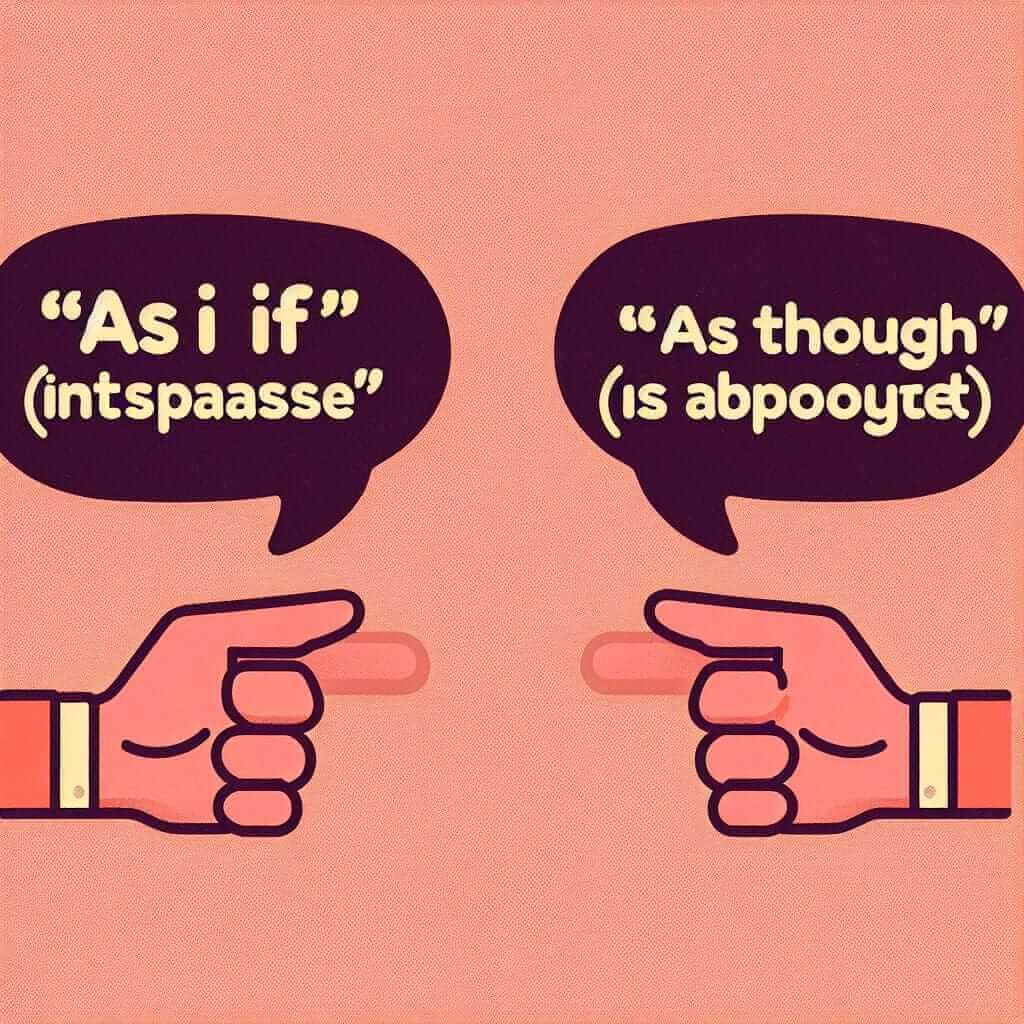“As if” and “as though” are two commonly confused phrases in English, even among native speakers. While they are interchangeable, understanding their nuances and correct usage can significantly enhance your IELTS score. These phrases are particularly valuable in the Writing and Speaking sections, where you’re expected to demonstrate a sophisticated understanding of grammar and vocabulary.
Let’s look at a few examples of how these phrases appear in IELTS:
Speaking:
- “The city felt deserted, as if everyone had vanished.” (Here, “as if” conveys a sense of unreality, describing the feeling of the speaker.)
Writing Task 1:
- “The graph shows a sharp decline in sales, as though a major event had impacted consumer behavior.” (“As though” implies a possible reason for the observed trend.)
Writing Task 2:
- “Some argue that technology isolates us, as if we are becoming robots ourselves.” (This example uses “as if” to draw a comparison and present a viewpoint.)
Understanding ‘As If’ and ‘As Though’
Both “as if” and “as though” are conjunctions used to introduce a clause that expresses an unreal or hypothetical situation. They essentially mean “in a way that suggests something is true, even though it might not be.” The key is that they highlight a comparison between the actual situation and an imagined one.
Usage and Grammar Rules
Here’s the grammatical breakdown:
Formula:
Subject + Verb + as if/as though + Subject + Verb (in the past tense)
Explanation:
- Main Clause: This sets the context or actual situation.
- “As if/as though”: These conjunctions connect the real situation with the hypothetical one.
- Subordinate Clause: This clause describes the unreal or imagined situation.
Key Point: Notice how the verb in the subordinate clause is often in the past tense, even if the main clause is in the present tense. This is crucial for indicating the hypothetical nature of the situation.
Examples:
- “He looked as if he had seen a ghost.” (It’s unlikely he actually saw a ghost, but his expression suggested it.)
- “She talked about the project as though she had been working on it for years.” (This implies she might be exaggerating her involvement.)
 As If As Though Example
As If As Though Example
Applying ‘As If’ and ‘As Though’ in IELTS
1. IELTS Writing
Using “as if” and “as though” can make your writing more vivid and engaging, showcasing a wider range of grammatical structures.
Example:
Instead of: “The city was very quiet at night.”
Try: “The city was eerily silent at night, as if it were holding its breath.” (This creates a more evocative image by comparing the silence to the city holding its breath.)
2. IELTS Speaking
These phrases are great for expressing feelings, opinions, and making comparisons, demonstrating fluency and natural-sounding English.
Example:
Instead of: “I was really surprised.”
Try: “I felt as if I had won the lottery!” (This exaggeration emphasizes your surprise by comparing it to winning the lottery.)
Common Mistakes and How to Avoid Them
- Incorrect Tense: Using the present tense in the subordinate clause makes the comparison sound real, not hypothetical.
- Incorrect: “He acts as if he knows everything.”
- Correct: “He acts as if he knew everything.”
- Overuse: While useful, don’t overuse these phrases as it can make your language sound unnatural.
Conclusion
Mastering “as if” and “as though” will undoubtedly elevate your IELTS writing and speaking, allowing you to express yourself with greater nuance and precision. Remember to pay attention to the tense in the subordinate clause and practice incorporating these phrases naturally into your English. Good luck!


